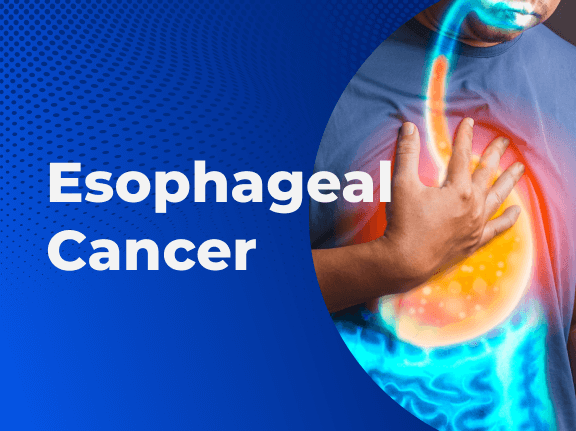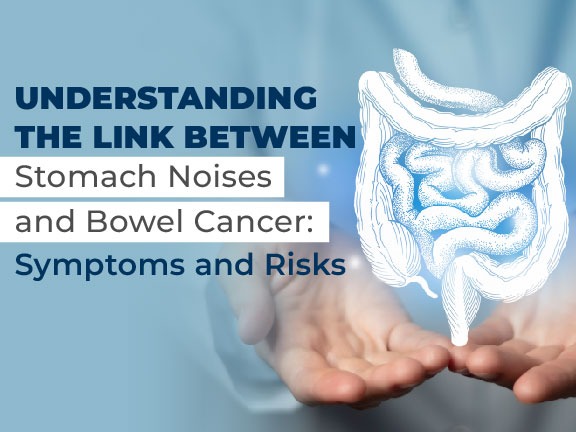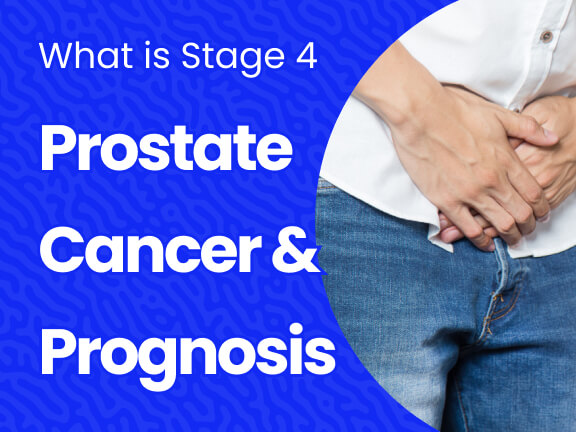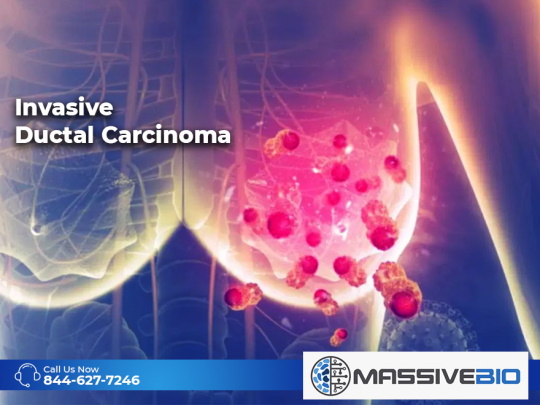What is Esophageal Cancer?
Esophageal cancer occurs when malignant cells are formed in the esophagus. The esophagus is a hollow and muscular tube that moves food and liquid from the throat, down to the stomach. Several layers of tissue line the esophagus and the cancerous cells usually develop within the lining. The two most common types of esophageal cancer are squamous cell carcinoma, which is mostly found in the upper or middle part of the esophagus and adenocarcinoma, which is often found in the lower part of the esophagus.
Esophageal Cancer Symptoms
Esophageal cancer symptoms can vary for each patient depending on several factors such as the type of cancer cells, size, and location of the tumor. Common symptoms experienced by esophageal cancer patients are:
- Difficulty swallowing
- Lump under the skin around the throat
- Pain behind the breastbone
- Unexpected weight loss
- Persistent cough and hoarseness
- Heartburn and indigestion
What Causes Esophageal Cancer?
There is no exact known cause for cancer of the esophagus, but there are factors that can increase the risk of it occurring. The exact cause of esophageal cancer is unknown, but it occurs when there is a mutation in DNA of the cells within the lining of the esophagus. When these cells continue to grow and reproduce a mass forms, which develops into a tumor. Mutations can be inherited from family or developed over the course of one’s lifetime.
Esophageal Cancer Risk Factors
Because there is no known cause of esophageal cancer, it is important to avoid risk factors to limit the risk of developing esophageal cancer. The known risk factors for esophageal cancer include:
- Tobacco use
- Heavy alcohol consumption
- Barret’s esophagus caused by gastric reflux
- Other chronic conditions of the esophagus
Esophageal Cancer Prevention
There is no known way of preventing esophageal cancer. However, it is recommended to avoid risk factors to decrease your risk of developing cancer. Also, following screening guidelines is key to ensure you are cancer free, or if cancer has developed that it is caught in the early stages, when successful treatment is more likely than in advanced stages.
If you are at risk of esophageal cancer or If symptoms are present, in order to confirm the diagnosis, a doctor may perform a neurological examination using imaging tests. Different methods can be used such as a barium swallow test, CT, MRI, or PET scan, or an endoscopy.
Esophageal Cancer Treatments
Treatment options for esophageal cancer depend on several factors such as the location of the tumor, stage, and subtype of cancer. Treatments can include both standard treatments and those available in clinical trials such as targeted therapies and immunotherapies. Standard treatments for cancer of the esophagus include:
- Surgery to remove the tumor for early stage patients
- Chemotherapy
- Radiation therapy
- Laser therapy
- Electrocoagulation
Esophageal Cancer Clinical Trials
The main reasons patients enroll in in esophageal cancer clinical trials are because they feel like they can help themselves and future esophageal cancer patients. Also, patients feel like their chances of survival seem better with the proposed experimental treatment and that the benefits outweigh the risks of participating in a clinical trial.
There are over 175 current esophageal cancer clinical trials that are currently recruiting, and several may be beneficial to you. Our team of patient relations coordinators, who are oncology nurses, and our artificial intelligence based clinical trial matching system will find the best option for you. With just a few clicks, you can see your clinical trial matches now. Click here to use our advanced clinical trial match tool.
How Do We Help Esophageal Cancer Patients?
Massive Bio offers an independent cancer treatment analysis as well as free clinical trial matching for esophageal cancer patients. Our patient relations coordinators work closely with patients to gather information on their current medical status, and then will provide a list of options from available cancer clinical trials close to your home.
We can also provide a comprehensive case analysis through our Virtual Tumor Board from cancer specialists. The Virtual Tumor Board (VTB) is comprised of highly specialized oncologists from nationally-recognized Cancer Centers of Excellence. In just 7-10 days after receiving your medical records, we can get you a treatment plan without having to travel far distances and use your valuable time.
Source:













